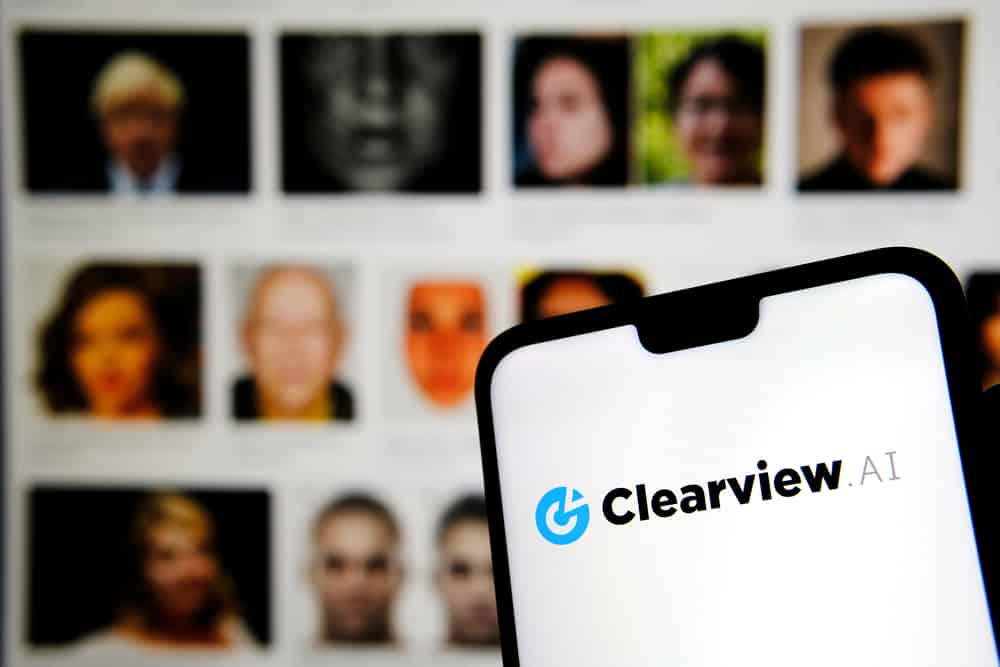Ukraine uses facial recognition technology to detect Russian soldiers and the identity of the dead
From March 12, the Ministry of Defense of Ukraine started using Clearview AI's facial recognition technology to detect Russian soldiers, combat misinformation and identify the dead, after being started. American technology recommended.

Lee Wolosky, an adviser to the company Clearview, a former diplomat under President Barack Obama and Joe Biden, said that Ukraine is getting free access to Clearview AI's powerful face search engine, which allows the government to check people of interest at checkpoints.
It is known that just providing someone's photo, the Clearview AI application will tell you where that face has appeared on the Internet, followed by full name, address, phone number, workplace . if any. In effect, Clearview AI will compare a photo with a database the application can access. Then, it will compare and search the websites, the original database where the identity in the image appeared. From there, a name, or many other personal information will be mined online.
Plans began to be put in place after Russia invaded Ukraine and Hoan Ton-That (Ton That Hoan, 34 years old, Vietnamese-Australian), CEO of Clearview, sent a letter to Kyiv asking for assistance. this country. Clearview said it did not offer to provide this technology to Russia.
Earlier, a spokesman for the Ministry of Digital Transformation of Ukraine said it was considering offers from US-based artificial intelligence companies such as Clearview. Many Western businesses have pledged to help Ukraine, providing Internet hardware, cybersecurity tools and other support.
The Clearview founder said his startup has more than 2 billion images from the VKontakte (Russia) social media service, out of a total of more than 10 billion images.
That database could make it easier for Ukraine to identify dead people than trying to match fingerprints, and work even if there's facial damage, Ton-That said. Research by the US Department of Energy shows how the analysis reduces the efficiency of the technology, while a paper from the 2021 conference shows promising results.
The letter from Ton-That also said Clearview's facial recognition technology could be used to help reunite refugees separated from their families, identify Russian agents and assist the government in removing them. remove false posts on social media related to war.
Mr. Ton-That did not know the exact purpose of the Ukrainian Ministry of Defense when using this facial recognition technology. Other Ukrainian government agencies are expected to deploy Clearview in the coming days, Ton-That and Lee Wolosky said.
The VKontakte images make Clearview's data set more comprehensive than PimEyes, a public image search engine many people use to identify individuals in war photographs, says Lee Wolosky. Previously, social media firm Facebook (now Meta Platforms) asked Clearview to stop taking its data.
It has been suggested that facial recognition technology could identify the wrong people at checkpoints and in battle. Albert Fox Cahn, executive director of the New York-based Surveillance Technology Oversight Project, said that misidentifications can lead to civilian deaths, just like the ones seen in other incidents. Wrongful arrests have arisen from the use of police.
Ton-That argues that Clearview should never be used as the sole source of identification and that he would not want the technology to violate the Geneva Conventions, which have created legal standards for humane treatment in war. Similar to other users, people in Ukraine are being trained and must enter their profile number and search reason before querying, he said.
Clearview, which is mainly sold to US law enforcement, is being sued in the country for allegedly violating privacy by taking images from the web. According to Clearview, the company's data collection is similar to how Google Search works. Still, some countries, including the UK and Australia, have deemed its activities illegal.
- The robbers are captured by facial recognition technology
- Australia will drop the passport, switch to face recognition at the airport
- Amazon said face recognition can identify fears
- There is technology to accurately identify whether you are happy or sad
- Facial recognition system $ 1 billion
- China develops facial recognition technology for chickens
- Germany develops face recognition technology in the dark
- Privacy Visor - Glass face recognition
- New technology to detect genetic disorders
- New technology to detect people stumbling on other people
- Glasses anti-facial recognition software
- Smart mirror only smiles to show face
 'Barefoot engineer' invents a pipeless pump
'Barefoot engineer' invents a pipeless pump Process of handling dead pigs due to disease
Process of handling dead pigs due to disease Radiometer
Radiometer Warp Engine: Technology brings us closer to the speed of light
Warp Engine: Technology brings us closer to the speed of light